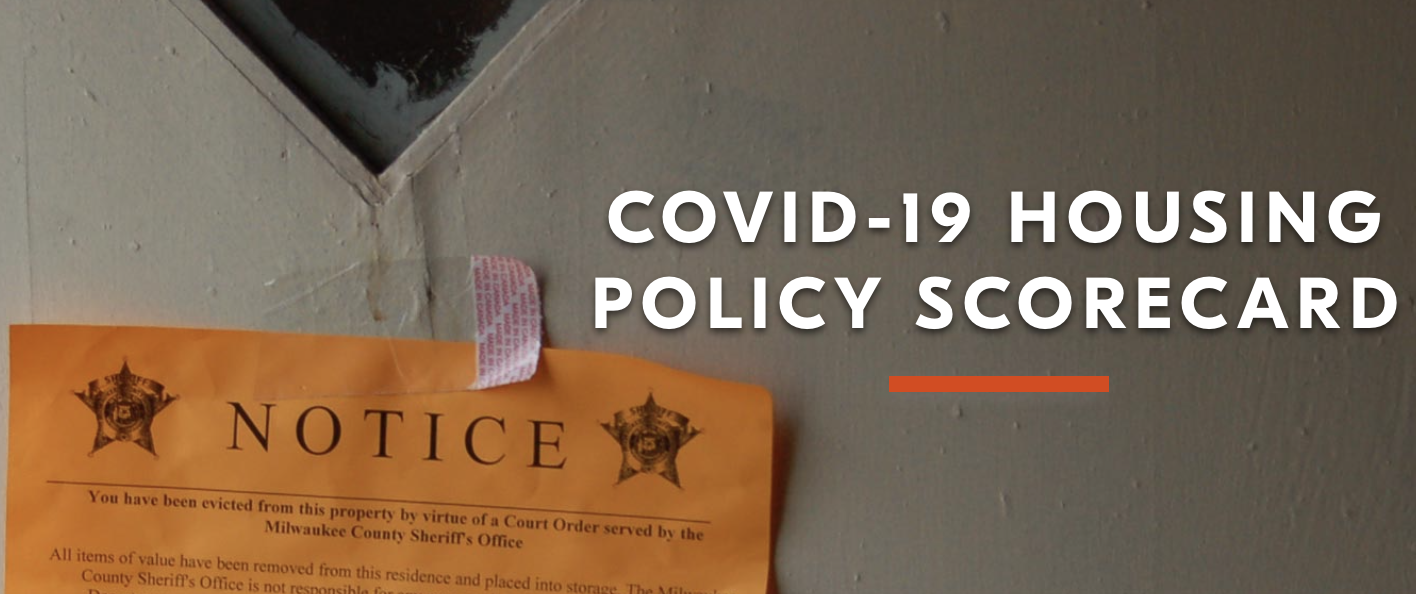
When the Eviction Lab at Princeton University built the first nationwide database of evictions and announced that 2.3 million Americans were forced to leave their homes in 2016 — during a period of relatively steady economic growth — many people were stunned. Now, as the COVID-19 pandemic sends shockwaves through the economy, that previous figure could pale in comparison to upcoming conditions. More than 38 million Americans have filed for unemployment since the crisis began, and for many, meeting next month’s rent or mortgage will prove difficult.
People need help and some states have responded, with stop-gap protections designed to limit evictions until the worst of the economic crisis passes. To help renters and homeowners understand their rights and navigate the process, the Eviction Lab recently developed a COVID-19 Housing Policy Scorecard, which rates each state’s homelessness-prevention response to the crisis.
“Owing to mass unemployment and high rents, the nation’s biggest public health crisis in a century could cause a full-blown outbreak of homelessness,” said Matthew Desmond, principal investigator for the Eviction Lab and the Maurice P. During Professor of Sociology. “The scorecard provides renters a simple way to see what rights have been extended in their states; and it provides policymakers a roadmap to crafting bold and effective responses that match the scale of our current challenge.”
The scorecard, developed with Columbia Law School’s professor Emily Benfer, focused on five criteria to measure a state’s efforts to ensure safe, decent and stable housing: eviction filings; the court process; law enforcement; short-term supports, such as grace periods; and tenancy preservation measures, such as barring late fees and rent raises.
The scorecard team spoke with housing advocates across the U.S. and pored through thousands of newly-released emergency orders, declarations and legislation. The initial results were not exactly encouraging: Only four states (plus Washington, D.C.) scored at least a 3.5 on a 5.0 scale. At the other end of the spectrum, 24 states scored less than 1.0, meaning they had few, if any, protections in place for renters and homeowners.
“We quickly realized that the moratoria on evictions are not as comprehensive as they seem,” said Alieza Durana, narrative change liaison for the Eviction Lab. “There are particular parts of the country where renters are most vulnerable, particularly in the South and the Great Plains states, even during the pandemic.”
It’s impossible to stay-at-home and stifle the spread of the virus if you do not have a home. A few states have established protective measures to prevent landlords from evicting tenants during the emergency, but those policies will eventually be lifted. So what happens then? According to the Washington Post, about 380,000 homeowners and renters in New England alone are at risk of falling behind on their monthly payments. And they won’t be able to rely on the understanding of banks and landlords: In the days before governors set up protective guidelines in Massachusetts and Connecticut — two of the top three states on the scorecard — there was a rush of about 1,500 eviction filings.
People need more than a policy scorecard, but the lab’s rankings and information can be an essential guide. And a powerful spotlight.
“When the Eviction Lab initially launched, and showed that there were hotspots for evictions in places that were unanticipated — mainly in the South in states like Virginia and South Carolina — we almost immediately saw an increase in media coverage of eviction in both places, as well as policy developments at the local and state levels,” Durana said. “We’re hopeful that the scorecard will have a similar effect, pointing to the vulnerabilities that too many people in our community face and making it easier for policymakers to think through what solutions are on the table.”
To learn more about the COVID-19 Housing Policy Scorecard, visit the Eviction Lab website.
You can also find more information about Matthew Desmond’s work to preserve affordable housing and reduce homelessness at JustShelter.org.




